Wrapping Up Reeling 2022
The 40th annual edition of Chicago’s Reeling International LGBTQ+ Film Festival is now in the books, having featured an array of narrative, documentary and short films in theaters and online. While the event had its strong points, the overall programming was a little less satisfying compared to past years. Nevertheless, I managed to screen 16 films during the festival’s two-week run. So, with that said, here’s my take on what I watched and what I thought.
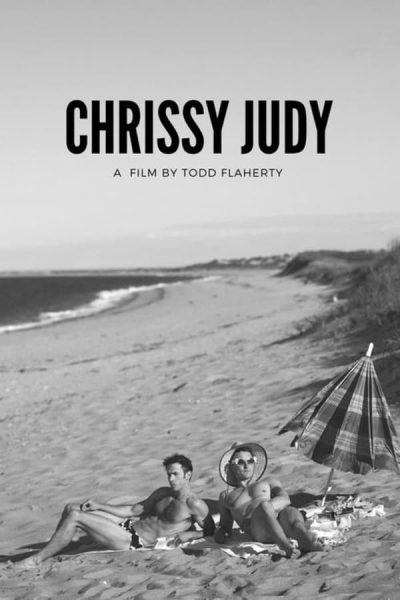
“Chrissy Judy” (USA)
(5/5); Letterboxd (5/5), Imdb.com (10/10); Web site, Trailer
Are BFFs really forever? We might like to think so, but, given the inevitability of change, such permanence might be too much to hope for – and a source of tremendous disappointment. So it is for Judy Blewhim (Todd Flaherty) and Chrissy Snowkween (Wyatt Fenner), a struggling drag queen sister act. When they’re not performing in little-known clubs in New York and on Fire Island, the besties party their way across Gotham and its environs, living a life of fun and frolic. But, when Chrissy unexpectedly announces that she’s moving to Philadelphia to live with her boyfriend (Kiyon Spencer), the decision throws life into chaos for Judy, both in terms of her social life and performing career, changes that don’t sit well with her. So what’s next? And how will this all affect their friendship? Such is the high drama that unfolds in this deliciously funny debut feature from writer-director Todd Flaherty. The film’s crisp screenplay, gorgeous black-and-white cinematography and fine performances by its excellent ensemble cast combine to make for a compelling, enjoyable watch, a project that in many ways plays like a gay version of a Woody Allen film. It touches on themes that many offerings in this genre seldom explore, such as gay male friendships, personal responsibility and living life outside the club scene. Also, while the picture includes many familiar LGBTQ+ community elements, it successfully avoids presenting them as clichés and stereotypes, often by taking those recognizable components and turning them on their ear. In light of all this, “Chrissy Judy” proved to be a very pleasant surprise and my favorite offering from the Reeling festival, if not one of the best films of 2022 that I have seen thus far. Drag your behind to the movies to see this one when you have the chance.
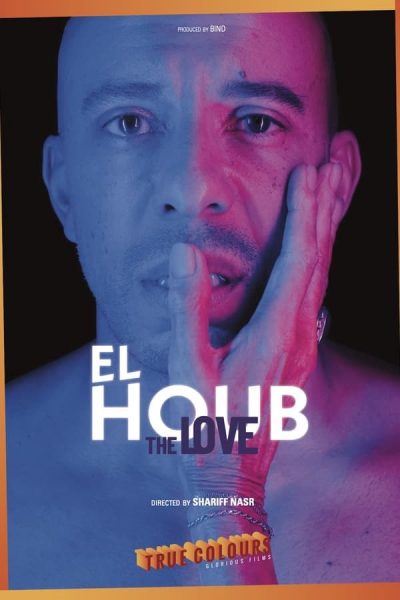
“El Houb” (“The Love”) (Netherlands)
(4.5/5); Letterboxd (4.5/5), Imdb.com (9/10); Web site
What happens when enough is enough? For a closeted gay Moroccan man living in Amsterdam (Fahd Larhzaoui), spending his life constantly looking over his shoulder and dodging questions about marriage from his family and community have truly tried his patience. And, when his father accidently discovers him with his Ghanaian boyfriend (Emmanuel Boafo), the incident sets off a firestorm with his parents (Slimane Dazi, Lubna Azabel)) and younger brother (Sabri Saddik). But it also represents an opportunity to finally get things out in the open once and for all, a process where he symbolically locks himself in a closet in his family home and refuses to leave until the matter is resolved. Events unfold along thematic lines during the lockdown, told through tense conversations and augmented with flashbacks, surrealistic sequences and interactions with the protagonist’s younger self (Shad Issa), encounters that benefit both the elder self and his 10-year-old counterpart. This inventive storytelling approach unearths revelations that apply not only to the beleaguered son, but also to his other family members and his loving partner, who sets a courageous example by severing relations with his relatives when those relationships no longer work. Writer-director Shariff Nasr’s debut narrative feature makes an impressive, albeit controversial, statement about knowing when to hold on and when to let go to tradition, culture and even ties to kindreds where those toxic bonds no longer serve us, regardless of the cause behind such dissolutions, but especially among those forced to endure intolerable prejudice and ridicule related to one’s sexuality and lifestyle. The sequence of events may come across as somewhat meandering at times, but, given the confusion and frustration in play here, who’s to say that one could remain completely rational when undergoing such as analysis. Any deficiencies in this are skillfully concealed by the picture’s excellent cinematography and production design, as well as the superb performances of its fine ensemble cast. “El Houb” represents a noteworthy start for a filmmaker who obviously has much to offer, a career that I can’t wait to see develop and unfold.
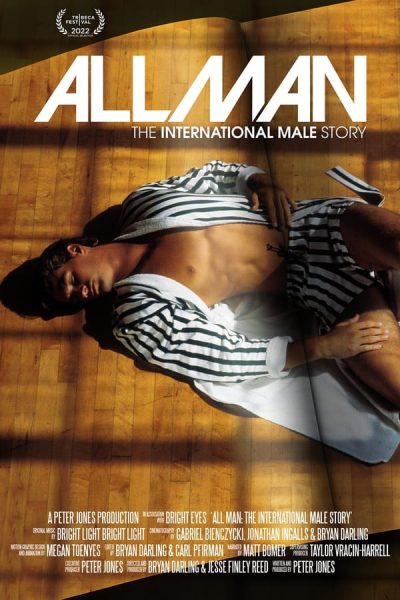
“All Man: The International Male Story” (USA)
(4/5); Letterboxd (4/5), Imdb.com (8/10); Web site, Trailer
Who would have thought that a mailorder catalog could become a culture-changing vehicle? So it was with the International Male catalog, a “magazine” used to promote the sale of provocative men’s clothing featuring models in sensual poses who epitomized the essence of virility and masculinity (for many readers, the publication’s real product). From modest, seat-of-the-pants beginnings in the 1970s, founder Gene Burkard grew the publication not only as an outlet for mailorder clothing sales, but also as source of quiet but undeniable empowerment for young gay men, prompting many closeted individuals to boldly step forward as their true selves and enabling them to embolden their emerging culture. At the same time, though, IM’s reach also extended into American culture at large, encouraging men of all backgrounds – including straight guys – to embrace clothing styles that they may have once never given a second look, making it possible for them to become comfortably fashion-conscious to a greater degree, a social shift that has persisted to this day. The widespread and often-underappreciated impact of this operation has been quietly significant, a major influence among American men in numerous ways, a phenomenon now celebrated in this fun, informative documentary from directors Bryan Darling and Jesse Finley Reed. In interviews with Burkard, many of IM’s models and staff, and a number of gay community and fashion industry insiders, along with ample steamy clips from the pages of the catalog, viewers are treated to an in-depth look at the impact and history of the publication, as well as how it reflected and helped shape an evolving culture, both at large and in its individual communities. There’s considerable eye candy here, too, making for an often-suggestive but eminently tasteful watch. For those interested in learning more about the reach of this influential publication, place your order to watch this one now.

“Elephant” (“Słoń”) (Poland)
(4/5); Letterboxd (4/5), Imdb.com (8/10); Web site, Trailer
Is it possible to establish a loving, open, intimate same-sex relationship in an atmosphere of intolerance? That’s the question raised in writer-director Kamil Krawczycki’s second feature about an emerging gay male partnership in a rural, ultra-conservative, brazenly homophobic region of Poland, a story courageously filmed on-site. The picture follows the story of a smalltime horse farmer (Jan Hrynkiewicz) and reluctant caregiver to his unappreciative, closed-minded mother (Ewa Skibinska) who begins falling for a long-absent musician (Pawel Tomaszewski) who returns home for his father’s funeral. But, when the duo starts spending time together, they raise eyebrows, especially given the prodigal son’s sullied reputation and the reasons for why he left years ago. As their bond strengthens, the couple faces some hard choices about their future – particularly where it will unfold. This gorgeously filmed, sensitively acted tale admittedly follows a rather prototypical narrative and experiences some occasional pacing issues, but, given how skillfully this production is executed, there’s much to be said for the picture’s overall quality. It’s the kind of saga that will undoubtedly stir the ire of some of the most prejudiced viewers – and deservedly so.
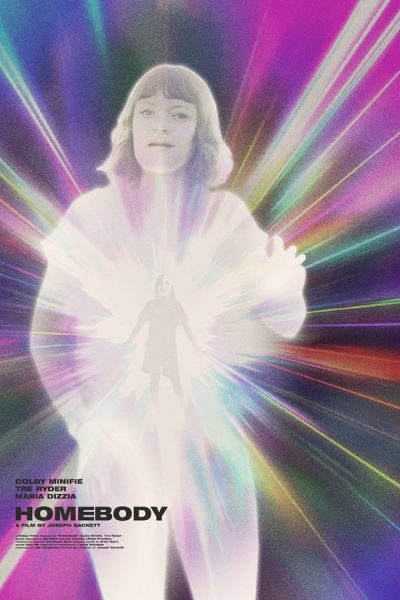
“Homebody” (USA)
(4/5); Letterboxd (4/5), Imdb.com (8/10); Web site, Trailer
When a nine-year-old boy (Tre Ryder) obsessed with his adult babysitter (Colby Minifie) employs a special meditation technique to insert his consciousness into her mind and experience what it’s like to be the object of his fascination, he’s at last provided with a prime opportunity to satisfy his curiosity. However, given their differences in age, life experience and gender, the youngster soon finds himself in over his head, perplexed by what he finds and ill-prepared to handle the new challenges placed before him, often with serious but hilarious consequences. Writer-director Joseph Sackett’s debut feature puts a delightfully humorous spin on the classic gender-switching narrative, though there are places where the pacing is needlessly stretched out, causing the story to sag somewhat, especially in the final act. Because of that, it almost seems as if this offering would have worked better as a snappy short given its already-brief 1:15:00 runtime, particularly if more economical editing had been applied to the final cut. Also, the film’s underdeveloped transgender-curious themes tend to downplay what probably should have been a more significant aspect of the overall story. The picture thus tends to play more like a metaphysical tale and an exploration of consciousness than an LGBTQ+ narrative. There’s nothing inherently wrong with that, but the trans aspects seem more like afterthoughts than integral story elements. This one comes close to living up to its potential, but a little retooling of this streaming release could have worked wonders – and truly made it worth staying home for.
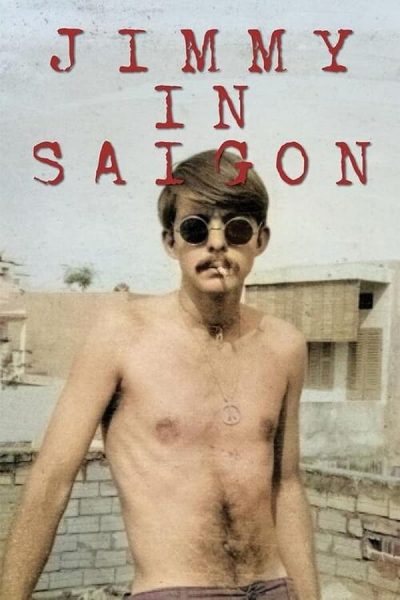
“Jimmy in Saigon” (USA)
(4/5); Letterboxd (4/5), Imdb.com (8/10); Web site, Trailer
How does one get to know about a loved one who is no longer with us and whose life no one will talk about? The profound lack of information about said individual and the unwillingness of others to share anything they know can be frustrating, if not maddening. So how is one to come to know such person? That’s the challenge that was faced by first-time feature director Peter McDowell, who wanted to know more about his deceased older brother, Jimmy, who died under somewhat mysterious circumstances in Saigon in 1972 when the filmmaker was only five years old. He knew little about his elder sibling, who was 19 years his senior, and, when he asked his family members about him, they typically said Jimmy’s passing was too painful to discuss. Peter knew that, if he truly wanted to know more, he would have to find out for himself. Thus began a decade-long project to discover the brother he barely knew, including the details of his life, his choices and his secrets. As the picture unfolds, the mysteries surrounding Jimmy gradually dissolve as the filmmaker comes closer to a series of well-concealed truths, insights that helped the director learn more about his brother, himself and the common bonds he unknowingly shared with his kindred. This heartfelt documentary thus leads viewers on a touching tale of discovery, one that painstakingly peels away layers of taboo that have long shrouded Jimmy’s story, escorting the filmmaker and audiences to heartwarming revelations that strip away the prejudices of another time, enable long-overdue healing and provide an enlightening new view of someone who was seriously misunderstood. There are times when the narrative seems to wander a bit, but, given the challenge the filmmaker was up against, it’s understandable how this might occur. However, anything worth knowing is worth waiting and working for, a truth that this younger brother ultimately comes to discover for himself.
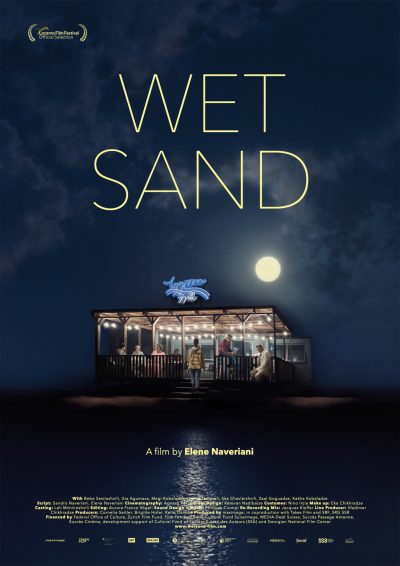
“Wet Sand” (Georgia/Switzerland)
(4/5); Letterboxd (4/5), Imdb.com (8/10); Web site, Trailer
Intolerance and small-mindedness are unpalatable enough in themselves, but, when taken to horrifically unthinkable extremes, they become utterly repulsive atrocities. Such is the case in this disturbing tale of life in a smalltime resort/fishing village on the Georgian Black Sea coast, where those who are different in any way – be it sexually, culturally, religiously or otherwise – are more than just ostracized; they become the targets of abject humiliation, brutal repression, unrepentant discrimination and even physical abuse. To make matters worse, those who inflict these venomous ways on others are often ignorant hypocrites who profess to be pinnacles of moral and ethical standards while openly engaging in acts and deeds to the contrary. Writer-director Elene Naveriani’s second feature outing makes a powerful statement about the revulsive dangers associated with these activities and holds nothing back in doing so, telling its story with formidable performances, chilling writing and impactful cinematography. Admittedly, the pacing could stand to be a bit brisker at times, but the deliberateness with which the tale unfolds simultaneously works wonders for the picture’s rich character development and prevailing mood. “Wet Sand” may not be an easy watch, but it will certainly leave quite an impression, one that both infuriates and inspires anyone concerned about seeing these injustices rectified.
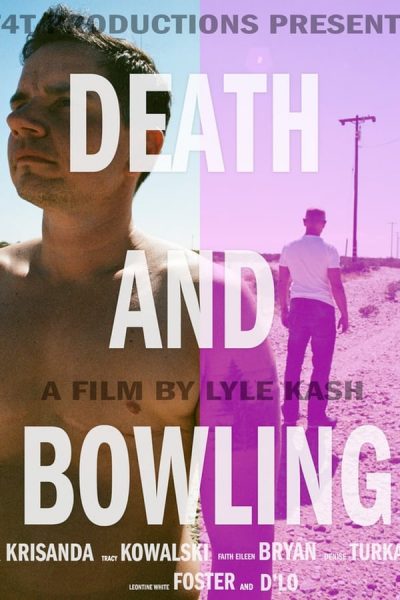
“Death and Bowling” (USA)
(3.5/5); Letterboxd (3.5/5), Imdb.com (7/10); Web site, Trailer
One thing is for sure – this is a film you’re unlikely to forget, even though it doesn’t necessarily work as a cohesive whole. Writer-director Lyle Kash’s debut feature – a meditation on transgender representation in media, specifically the state of “being seen” – indeed makes a statement, even if it isn’t always entirely clear what that statement actually is. In this story of a transgender male would-be actor (Will Krisanda) who often feels lost and invisible, he takes comfort in his relationship with his lesbian bowling team, particularly its wise, compassionate, no-nonsense aging captain (Faith Bryan). But, when his confidante/mother figure dies, he feels even more adrift – that is, until he attends her funeral, where he meets her long-absent son (Tracy Kowalski), a child no one knew existed. Together, the duo strikes up a bond in their search to find themselves, a process that unfolds on multiple levels. However, despite the film’s strong start and strong finish, it’s unfortunate that it sags in the middle, veering into cryptic, muddled, almost pretentious material that’s, frankly, often difficult to fathom. To its credit, the picture’s inventive visuals, creative cinematography and captivating production design distinguish this effort from what’s seen in many other contemporary releases, and its unique storytelling approach and delightful character development aptly show more than tell. But, when the film attempts to become a little too clever and experimental for its own good, it loses traction – and perhaps even viewer interest – qualities that are difficult to get back. Fortunately, all is not lost, and some of what makes this offering succeed is successfully retrieved, but not before coming perilously close to losing it all – including the impact it was intended to have. No gutter balls here, but definitely more spares than strikes.

“The First Fallen” (“Os Primeiros Soldados”) (Brazil)
(3.5/5); Letterboxd (3.5/5), Imdb.com (7/10); Web site, Trailer
It can be terrifying to know that something is wrong but not know what it is. So it was for many in the LGBTQ+ community in the early ʼ80s with the onset of the AIDS crisis, a disease that didn’t even have a name at the time but was simply referred to as “the gay plague.” In writer-director Rodrigo de Oliveira’s latest, the filmmaker examines this issue from the standpoint of three friends (Johnny Massaro, Renata Carvalho, Victor Camilo) afflicted with the illness in the Brazilian city of Vitória. The first half explores their growing undefined uneasiness, while the second chronicles their struggle once their worst fears are confirmed. Oliveira accomplishes this by employing a variety of storytelling techniques, some of which definitely work better than others. The picture’s second half is undoubtedly the stronger portion of the film, addressing the characters’ anguish in gut-wrenching detail and providing them with a platform for waxing hauntingly philosophically about the symbolic nature of their illness, story elements effectively brought to life by the superb trio of performances of Massaro, Carvalho and Camilo. It’s unfortunate, however, that all aspects don’t work equally well, especially those in the first half, where the protagonists’ uncertainty about their status is sometimes treated a little too subtly, even cryptically, leaving viewers wondering exactly what’s going on with them. That’s particularly true when metaphorical sequences intrude on the primary narrative, needlessly muddying the waters. Considering the impact this devastating disease has had on the world for four decades, this story represents a significant milestone in the emergence and unfolding of this crisis, a scary time when little was known and the future impact of this scourge could not be foreseen. It’s regrettable, though, that this film doesn’t quite do it justice in those regards as effectively as it might have.

“Shall I Compare You to a Summer’s Day?” (“Bashtaalak sa’at”) (Egypt/Lebanon/Germany)
(3.5/5); Letterboxd (3.5/5), Imdb.com (7/10); Web site
I’ll say it up front – writer-director Mohammad Skawky Hassan’s debut feature is definitely not everyone’s cup of tea, but that’s not to suggest it’s without merit. This experimental piece presents viewers with a sonnet on the nature of gay male love, relationships and eroticism in all their myriad forms. The film’s artistic, nonlinear narrative incorporates a combination of live action, animation and music video-style sequences, along with more than its share of sexually explicit sequences (sensitive viewers beware). It combines elements from a series of stories drawn from the filmmaker’s diary, creating a montage of images and poetic anecdotes styled after an array of classic works drawing from such influences as Shakespeare and Scheherazade. It’s also a truly bold gay-themed work to emerge from Middle Eastern culture, an accomplishment to be praised for its audacity. The result is an intriguing mix of artistry, eye candy and camp, though the lack of a more unified narrative can be a tad frustrating, especially among those expecting a more conventional storytelling approach. Perhaps the best way to enjoy this one is to simply sit back and let this one wash over you and not try to over-analyze it.
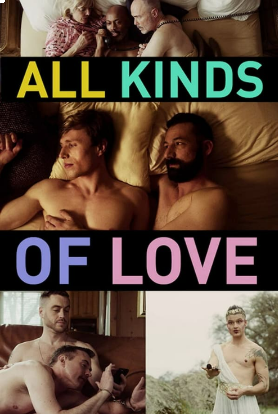
“All Kinds of Love” (USA)
(3/5); Letterboxd (3/5), Imdb.com (6/10); Web site, Trailer
Romantic comedies are a pleasant way of spending some time at the movies. However, considering the longstanding nature of this genre, it’s imperative that new entries in this category distinguish themselves by incorporating stories, characters and narrative elements that are fresh, inventive and different. Unfortunately, those are qualities largely missing from this latest offering from writer-director David Lewis. In spite of its impressive production values across the board, this story of a long-tenured gay male couple (Matthew Montgomery, Steve Callahan) that, ironically enough, decides to part ways just as the Supreme Court hands down its landmark decision in the Marriage Equality case is about as sappy and predictable as a rom-com can possibly get. To be sure, this release features its share of solid performances, moments of genuinely inspired humor and several modestly intriguing plot twists, but that’s not enough, as much of the film unfolds in a wholly foreseeable fashion, leaving viewers with little to be surprised about. It’s also weighed down by a positively annoying soundtrack that plays like it was plucked from a Hallmark Channel movie. Sensitive viewers should also be cautioned about some extensive and surprisingly explicit sexual content for of picture of this nature. It’s regrettable, though, that the strength of this production’s story didn’t match that of the elements that went into telling it. But an empty package is still an empty package, no matter how beautifully it may be wrapped.
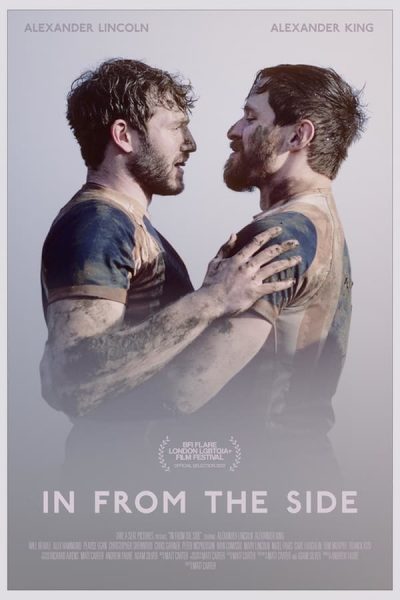
“In from the Side” (UK)
(3/5); Letterboxd (3/5), Imdb.com (6/10); Web site, Trailer
In-depth narrative features about lesser-known segments of the LGBTQ+ community don’t exactly come along every day, so it’s indeed heartening when one about life in one of them – specifically the gay male rugby kinship – makes an appearance in the movie market (even if primarily only at film festivals). What’s less satisfying, however, is when such a release doesn’t quite live up to its potential, as is the case with writer-director Matt Carter’s second offering. In following the clandestine love affair of two London ruggers (Alexander Lincoln, Alexander King) who attempt to conceal their secret romance from their partners and teammates, the film explores its share of ethical matters, as well as the hard choices involved in making decisions about when it’s time to hold on to or to let go of existing relationships (especially when they appear to have run their course). However, in telling this story, the film drones on far too long and seriously needs to dial back some of its melodramatic soap opera tropes. It also could stand to lose some of its heavy-handed judgmentalism about open gay male relationships, arrangements that are fairly common (and, in many cases, reasonably healthy) in the LGBTQ+ community. To its credit, though, this production features an array of fine performances (particularly among its cast of colorful supporting characters), as well as excellent cinematography of the rough-and-tumble rugby matches. Sensitive viewers, though, should beware of some sexually explicit content in deciding whether to screen this offering. But then, given the picture’s unfortunate shortcomings, viewers in general might want to consider that decision carefully as well. In my view, I’d wait until it becomes available for streaming – and an occasion when you’ve got time to spare.
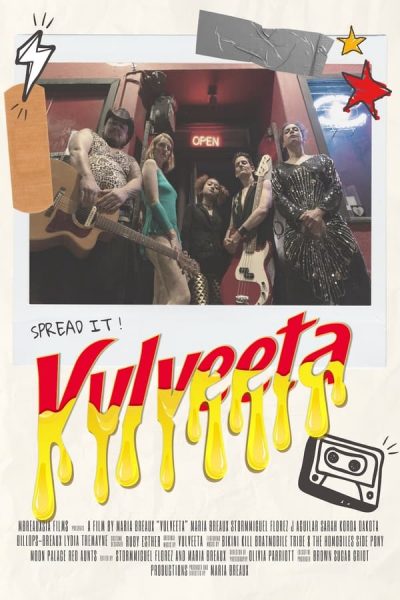
“Vulveeta” (USA)
(3/5); Letterboxd (3/5), Imdb.com (6/10); Web site, Trailer
As she approaches her 50th birthday, former riot grrrl punk band front woman Grrrilda Beausoleil (Maria Breaux) decides to celebrate by organizing a reunion of the disbanded group after a 20-year hiatus, all of which is to be chronicled by a documentary film crew. However, as enthusiastic as she might be about this project, not all of Grrrilda’s former band mates (J Aguilar, Dakota Billops-Breaux, StormMiguel Florez, Ruby Goldberg) are on board when it comes to realizing her particular vision for the venture. Things have changed in the Bay Area arts and music scene in that time, not to mention in the lives of the musicians and in their relationships with their onetime lead vocalist. Circumstances have changed so much, in fact, that the comeback may never get off the ground before it even starts. Such are the challenges faced in writer-director Maria Breaux’s completely improvised mockumentary, a comedy with ample potential that, unfortunately, could have benefitted from some additional development and refinement before filming began. While many sequences are genuinely hilarious, others go on too long and/or fail to stick the landings. That’s too bad, especially since the premise here is solid, one that could have provided the platform for truly outrageous humor. Regrettably, the bits that don’t work are overly stretched out, fall flat or are simply too tame given the underlying subject matter. What’s more, the LGBTQ+ aspects of the story and the documentary nature of the storytelling approach are often underdeveloped, in both cases representing failures to tap into rich veins of material that could have (and should have) played more important roles in the overall narrative. To its credit, though, when it works, it works, especially in the inspired musical numbers and the camera work, such as a performance sequence that plays like an homage to the B-52s’ Love Shack music video. “Vulvetta” is by no means an awful film, but it’s one that, with a little more fine-tuning, could have been a lot better – and a great way for Grrrilda to celebrate her birthday.

“Manscaping” (USA)
(2/5); Letterboxd (2/5), Imdb.com (4/10); Web site, Trailer
As men have become more conscious of their appearance, that trend has extended beyond clothing to their grooming rituals, especially in the LGBTQ+ community. In the pursuit of creating distinctive looks for themselves – including everything from hair styles to skin care to the preening of their most personal regions – they have increasingly sought out the services of skilled tonsorial and cosmetological experts who practice the art of manscaping. It’s a field that has grown ever more specialized in recent years, too, with practitioners who offer unique and customized services to their clients. From that, one might think that this wide range of services would provide ample fodder for documentation and discussion. Unfortunately, director Broderick Fox’s latest documentary woefully misses the mark when it comes to this subject. This scant 60-minute release is essentially limited to the work of two manscaping professionals (Jessie Anderson, Richard Savvy) and an artist (Devan Shimoyama) whose works celebrate the barbering arts (why he was included here truly escapes me). What’s more, these subjects represent some of the more extreme examples of what manscaping is all about, excluding the work of more typical practitioners and erroneously portraying this art as a purely fringe activity. In doing this, the director leaves considerable material on the table and presents a somewhat skewed perspective on this topic. The film also annoyingly goes off topic often, exploring subject matter that’s only tangentially related to the supposed main thrust of the picture. Sadly, this offering represents a missed opportunity, leaving viewers with an underdeveloped look at something that should have been a source of fun, diversity and insight.
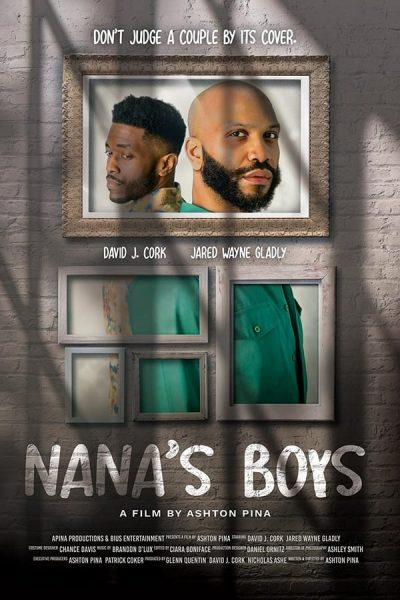
“Nana’s Boys” (USA)
(1/5); Letterboxd (1/5), Imdb.com (2/10); Web site, Trailer
Breaking up is hard to do (or so they say). In any event, that’s something no one would get from watching this largely improbable offering about an African-American gay male couple (David J. Cork, Jared Wayne Gladly) whose relationship is teetering on the brink. When a sudden and massive explosion not far from their New York apartment unexpectedly throws the partners into a mandatory lockdown, their confinement leaves them to confront one another, a process full of revelations that accelerates their assessment of their circumstances and hastens a decision about how to proceed. In all sincerity, it’s a story that seems to have its heart in the right place, but, unfortunately, the writing is so implausible and unconvincing that it’s difficult to believe that this is a couple potentially on the verge of collapse, despite the alleged sensitivity it’s trying to convey. The characters sound more like they’re reciting scripted dialogue than engaging in believable conversation, and they often behave more like they’re on a date than wrestling with the course of their future. In many ways, this comes across like a more dramatic, reworked gay version of “Scenes from a Mall” (1991), only with fewer characters and staged in a more confined space (and about as compelling and credible as its more comedic predecessor). Writer-director Ashton Pina’s debut feature truly plays like a first-time effort, one sorely in need of a hefty dose of realism, not to mention a little less overacting and a soundtrack that doesn’t sound like it was pulled from a made-for-cable TV movie. Sadly, situations like this are often messy and ugly, and their depiction shouldn’t be glossed over with the kinds of polite, make-nice tropes that riddle the narrative and screenplay here, painful though that truth may be.
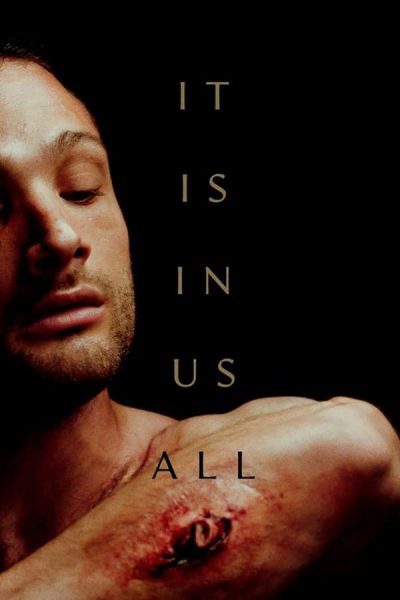
“It is in Us All” (Ireland)
(0.5/5); Rotten Tomatoes (+), Letterboxd (0.5/5), Imdb.com (1/10); Web site, Trailer
Upon completing my watch of this indecipherable, preposterous cinematic mess, I couldn’t help but come away from it asking myself, “What the hell did I just watch?” Writer-director Antonia Campbell-Hughes’s debut narrative feature is so “nuanced” as to be utterly vague and patently incoherent. I probably gave this one more than sufficient benefit of the doubt while screening it, awaiting a payoff (or even a half-hearted rational explanation) come movie’s end, but no such luck. The meandering, improbable screenplay of this unfocused tale about a car accident victim (Cosmo Jarvis) who becomes inexplicably fixated about a younger uninjured survivor (Rhys Mannion) from the same incident makes virtually no sense, jumping from one ostensibly random situation to another without seeming rhyme or reason, much of it padded with repetitive, pithy extraneous shots of the rural windswept Irish landscape. What’s more, it’s puzzling why this offering was selected as a featured presentation for an LGBTQ+ film festival, given that there are almost no references to the protagonist’s sexuality or the gay community at large. It truly boggles my mind how reviewers have praised this incomprehensible exercise in ill-conceived, poorly executed celluloid self-indulgence. Avoid this one at all costs.

Copyright © 2022, by Brent Marchant. All rights reserved.



